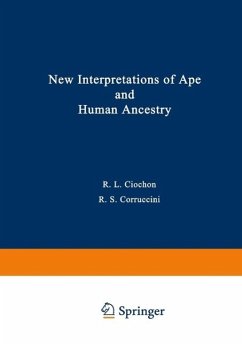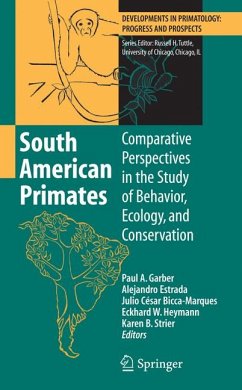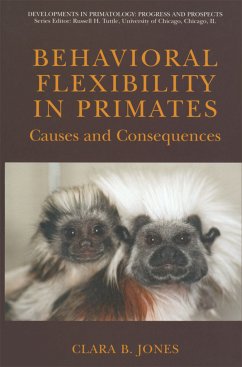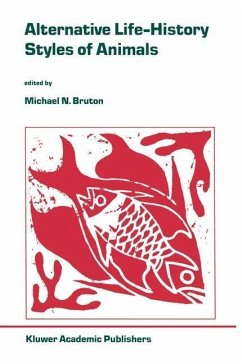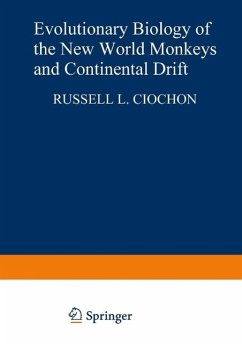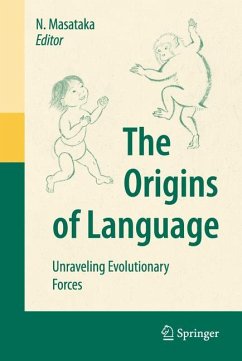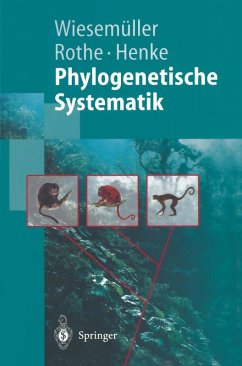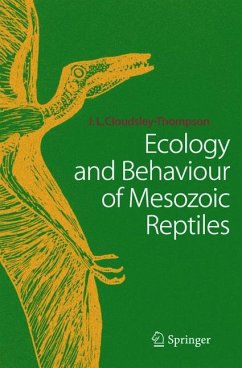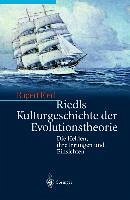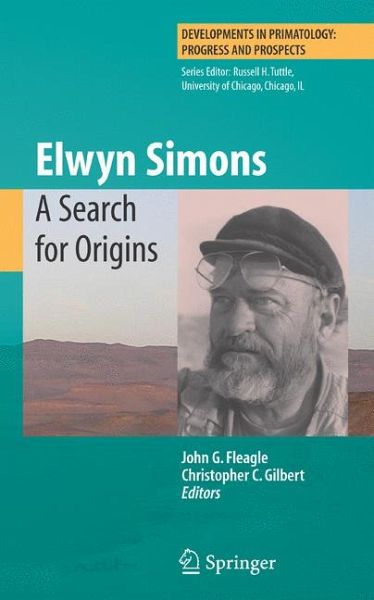
Elwyn Simons: A Search for Origins (eBook, PDF)
Versandkostenfrei!
Sofort per Download lieferbar
112,95 €
inkl. MwSt.
Weitere Ausgaben:

PAYBACK Punkte
56 °P sammeln!
Elwyn Simons has held professional appointments at Yale University (1960-1977), Duke University (1977-present), and was the Director of the Duke Primate Center (1977-1991) and Scientific Director (1991-2001). He has authored nearly 300 scientific publications and is the holder of many high honors. He is a member of the United States National Academy of Sciences, the American Philosophical Society, as well as many other professional associations. He was elected a "Knight of the National Order" by the government of Madagascar and has been the recipient of many awards including the prestigious Ch...
Elwyn Simons has held professional appointments at Yale University (1960-1977), Duke University (1977-present), and was the Director of the Duke Primate Center (1977-1991) and Scientific Director (1991-2001). He has authored nearly 300 scientific publications and is the holder of many high honors. He is a member of the United States National Academy of Sciences, the American Philosophical Society, as well as many other professional associations. He was elected a "Knight of the National Order" by the government of Madagascar and has been the recipient of many awards including the prestigious Charles R. Darwin Award for Lifetime Achievement from the American Association of Physical Anthropologists.
For nearly a half century, Dr. Simons has dominated the study of primate evolution. The volume aims to summarize the current state of knowledge in many aspects of primate and human evolution that have been studied by Simons and his colleagues and place it in a broader paleontological and historical perspective. The volume will contain the results of new research and reviews of many of the critical issues in primate and human evolution during the last half of the twentieth century and well as aspects of African paleontology and primate conservation in Madagascar. The authors are an extremely distinguished group of international authorities on all aspects of primate and human evolution and primate behavior.
Although linked primarily by their connection to Simons' own career, the chapters will include a wide range of important new works that will be valuable contributions to the field of physical anthropology and paleontology and are certain to be widely cited and used in teaching. Several of the papers (Simons et al., Wing et al., Seiffert et al., Gingerich, O'Conner) will be broad reviews of the history of research and discoveries in the fossil deposits of the Fayum, Egypt that have formed the background of our understanding of anthropoidevolution for over a century and will be important researchers for students and researchers in primate evolution and African paleontology. Similarly, broad reviews of the history of primate paleontology and human evolution (Rasmussen, Pilbeam, Wood; Sussman and Hart) will be essential reading in courses in primate and human evolution as well as the history of physical anthropology. Other authors will describe new research results on early anthropoid fossils from Egypt (Kay and Simons) Tanzania (Stevens) and Myanmar (Gunnell and Ciochon). The chapter by John Oakley, Professor of Law at the University of California addresses the challenges to the teaching of evolution in schools- both public and universities world wide.
Another major focus of several chapters will be the primates of Madagascar. Two chapters will be reviews of the extraordinary radiation of fossil lemurs (Godfrey et al, Jungers et al.). Two will review the behavior and conservation of living lemurs (Taylor and Wright) and the chapter by Tattersall will bridge the two major sections of the book by discussing about the biogeographic history of Malagasy mammals.
For nearly a half century, Dr. Simons has dominated the study of primate evolution. The volume aims to summarize the current state of knowledge in many aspects of primate and human evolution that have been studied by Simons and his colleagues and place it in a broader paleontological and historical perspective. The volume will contain the results of new research and reviews of many of the critical issues in primate and human evolution during the last half of the twentieth century and well as aspects of African paleontology and primate conservation in Madagascar. The authors are an extremely distinguished group of international authorities on all aspects of primate and human evolution and primate behavior.
Although linked primarily by their connection to Simons' own career, the chapters will include a wide range of important new works that will be valuable contributions to the field of physical anthropology and paleontology and are certain to be widely cited and used in teaching. Several of the papers (Simons et al., Wing et al., Seiffert et al., Gingerich, O'Conner) will be broad reviews of the history of research and discoveries in the fossil deposits of the Fayum, Egypt that have formed the background of our understanding of anthropoidevolution for over a century and will be important researchers for students and researchers in primate evolution and African paleontology. Similarly, broad reviews of the history of primate paleontology and human evolution (Rasmussen, Pilbeam, Wood; Sussman and Hart) will be essential reading in courses in primate and human evolution as well as the history of physical anthropology. Other authors will describe new research results on early anthropoid fossils from Egypt (Kay and Simons) Tanzania (Stevens) and Myanmar (Gunnell and Ciochon). The chapter by John Oakley, Professor of Law at the University of California addresses the challenges to the teaching of evolution in schools- both public and universities world wide.
Another major focus of several chapters will be the primates of Madagascar. Two chapters will be reviews of the extraordinary radiation of fossil lemurs (Godfrey et al, Jungers et al.). Two will review the behavior and conservation of living lemurs (Taylor and Wright) and the chapter by Tattersall will bridge the two major sections of the book by discussing about the biogeographic history of Malagasy mammals.
Dieser Download kann aus rechtlichen Gründen nur mit Rechnungsadresse in A, B, BG, CY, CZ, D, DK, EW, E, FIN, F, GR, HR, H, IRL, I, LT, L, LR, M, NL, PL, P, R, S, SLO, SK ausgeliefert werden.




